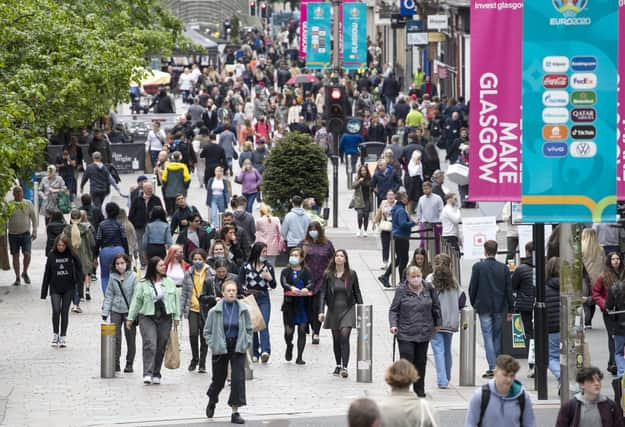Scottish Retail Consortium: Devolution of VAT would cause problems for retailers


Meanwhile, the Scottish Government should consider a further discount to business rates next year and put on hold planned policies such as workplace parking levies and a potential requirement for calories to be marked on menus in retailer's cafes, the industry body warned, in a consultation document due to be submitted to the Scottish Government.
The document, which is the SRC’s response to the Scottish Government’s tax framework proposals, said: “Consumer spending is the mainstay of Scotland’s economy, yet eighteen months on from the onset of the pandemic and retail spending has yet to recover to pre- pandemic levels. The problems are especially acute in city centres where shopper footfall is weakest, and where we’ve yet to see a full return of office workers and tourists.”
Advertisement
Hide AdAdvertisement
Hide AdThe Scottish Government mooted the idea of devolving VAT to Scotland in the framework, saying that it would call upon the UK Government to ensure the scope of its Fiscal Framework Review includes the further devolution of tax and fiscal powers to Scotland: including income tax, National Insurance Contributions and VAT. It said the move would provide the Scottish Government “with further levers to tailor taxation policy to Scotland’s economic circumstances and the Scottish Government’s policy objectives”. It added that “intrinsic difficulties” were ongoing to assign a portion of VAT revenue to Scotland and said the devolution of full VAT powers would be a “better alternative”.
The SRC said: “The SRC has been supportive of the proposals to assign a portion of VAT to the Scottish Parliament. We believe doing so creates a direct relationship
between retail sales and Scottish Government revenues, further incentivising the government to support the industry. However, we are not persuaded of the merits
of the devolution of VAT.”
It added: “Differing VAT regimes in different parts of the UK would presumably have administrative and cost implications for tills in shops, cafes, restaurants, pubs, cinemas and other consumer- facing establishments to accommodate differing VAT rates.”
The SRC also warned that stores are currently stores are still trading at just 90 per cent of what they did prior to the pandemic and said that upcoming “public policy challenges” would add an extra burden.
It said: “Given continued turbulent trading conditions it is likely that it will take time for retailers to pay back the Covid loans, tax deferrals and other debts, more so as they grapple with various upcoming public policy challenges – eg deposit return scheme for drinks bottles and cans, the UK’s proposed extended producer responsibility for packaging waste, possible curb on New Year’s Day trading, potential mandatory calorie labelling on the menus of retailers’ cafes, new restrictions on the sale of fireworks etc) and planned rises in both employers’ national insurance contributions and corporation tax.”
A Scottish Government spokesman said: “Despite devolution of some tax powers to the Scottish Parliament in recent years, VAT policy and administration remain reserved. The Scottish Government believes all tax powers should be devolved, so fiscal decisions affecting the people of Scotland can be made here."
A message from the Editor:
Thank you for reading this article. We're more reliant on your support than ever as the shift in consumer habits brought about by Coronavirus impacts our advertisers.
If you haven't already, please consider supporting our trusted, fact-checked journalism by taking out a digital subscription.
Comments
Want to join the conversation? Please or to comment on this article.
